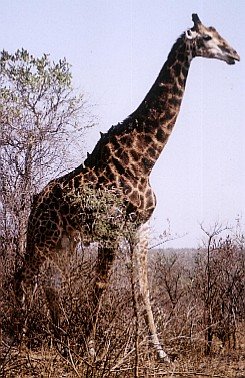
African problems need African solutions.
Rhino horn is destined for China and other countries that believe in magic potions.
People who believe in magic potions also believe in curses and protective forces.
A problem-solving meeting between top African Sangomas, global energy healers and ancestral advisers (People who can hear the voice of the ancestors) can be staged here in Cape Town. They can solve this problem using African magic. This meeting can be paid for with lotto funds.
A curse can be placed on those who use or remove rhino horn for self gain. A protective ring can be cast around our game reserves. If rhino and other African animal horns are cursed, it will loose its magic power.
However, the meeting should not only concern the curse of the horn but also discuss how traditional healers and sangomas can obtain their needed supplies for the use of their magic poaches without destroying our natural resources.
Nature parks can for instance allow natural healers access to plants as long as they help to maintain the local species and help to identify and regenerate problem areas. Alternatively living Sangoma pharmacies can be grown.
Even the sangomas who use human body parts can brainstorm ideas of how to obtain their specimens legally without causing pain or hardship to innocent victims.
Instead of using the sexual organs of virgins or babies to cure aids for instance they may agree to use cord blood or the blood of a placenta instead of killing a baby.
This does not have to mean that we approve such superstitious methods, but Africa has to evolve her own belief structures.
Denying people the right to practice the black magic art may only make the mootie more valuable when the practice is pushed underground. Most users care little how the animal part has been obtained or if the animal, or human, was live when it was removed. We can wash black magic by finding humane substitutes and the result may be that the cruelty of the past may disappear altogether when black magic turns gray.
African and traditional Chinese medical practices share many of the same principles.
Once the curse (protection) has been cast it can be announced via the Internet, Facebook and Twitter and Wallah! The rhino will have an invisible protective net.
Most Christians will frown at this post, and the suggestion of aiding and abetting black magic. I do not blame us, but we need to remember that the majority of people living in Africa are traditional believers. The spirit of Africa needs to be washed by her majority.
The difference between white and black magic on all levels is that the black magician uses his magic to empower himself or individuals (or his lower nature).
The white magician uses his magic for the good of the whole (The nation or the group) or his soul nature, without expecting self-gain.
Pain and animal or human sacrifice is no longer the way of the evolved, more sensitive, human but Africa needs to grow at her own pace. She shall do it through her own believe structures and not by adopting foreign religious doctrines, even if in the end all humanity may be destined for one religion when they recognize the different faces of the ONE GOD.
PHOTO ALBUM








.JPG)







